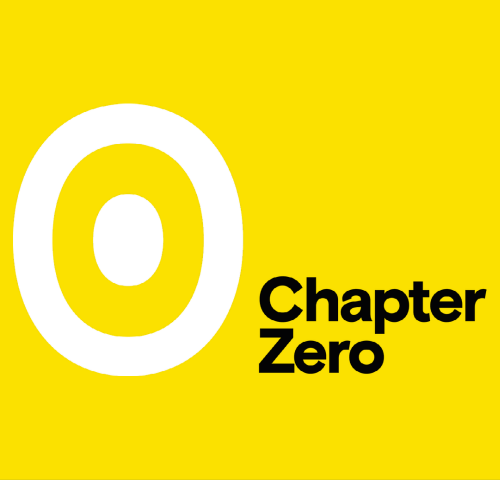
Member survey 2025: climate remains a priority but requires fresh thinking
“A proportion of corporations are certainly stepping back from previous commitments, with a roughly similar proportion stepping up to a future that they see as both inevitable and marked by opportunity,” says Jonathan Hall, Global Managing Partner of Kantar’s Sustainable Transformation Practice, in his preface to the 2025 ‘Chapter Zero Impact Report’.
“For most, their strategies and actions have not changed: rather there is an evolution in language and positioning. WBCSD has termed this shift ‘from morality to materiality’ and companies describe a coming of age for sustainability as it becomes a core component of business strategy, with an increasing emphasis on terminology such as business resilience, adaptation to externalities, and future opportunity.”
He points out that this year’s survey reflects these themes, with a concentrated focus on the core integration of sustainability into strategy and leadership, and its potentially transformational impact.
What the survey reveals about members’ attitudes to climate
It is little surprise that 99% of respondents believe it is the board’s responsibility to influence climate action. In fact, climate is seen as a priority across all participating members: 45% put it as high priority and 55% put it medium priority.
KEY MEMBER SURVEY STATS 2025
|
Fresh thinking is vital. A massive 95% of respondents say this, up 2% on last year. Around three-quarters of respondents say that climate drives innovation and growth, it is transformative and is therefore being embedded in business strategy.
Thinking about the board you sit on, how strongly do you agree with each of these statements?Climate requires new thinking/leadership from the boardroom, the executive and the workforce 95% (+2%) Climate is a key driver of innovation and growth 77% ( - ) Climate will transform our business model over the longer term 76% (+1%) Climate is embedded in core business strategy 73% ( - ) |
Some NEDs are prioritising climate more, despite the current geopolitical climate. For most, climate issues are not political. They are perceived as being critical to business resilience on one hand, and adaptability on the other. When asked how the changing geopolitical landscape impacts how the board sees climate action, one member responds: “Events certainly lead to questions around the level of activity and the value of this. However, [they have] also helped crystallise discussions as to why the company is seeking to understand the impact of climate action.”
Boards are still focusing on decarbonisation and risk management, but other issues are becoming equally important. This year, topics such as innovation and supply/value chain stakeholder engagement are becoming similarly pressing. “I believe the opportunities associated with pursuing a net zero target are leading to both innovation and competitiveness,” says one member.
What the survey reveals about members’ attitudes to Chapter Zero
Members consistently express admiration and respect for Chapter Zero. They recognise the organisation as a trusted partner in their climate leadership journey. A huge 75% of Chapter Zero members are likely to recommend Chapter Zero with a massive 83% of Chairs likely to recommend.
| 78% support – “Chapter Zero helps us learn, discuss and improve our approaches”
88% trust – “It’s very professional […] you are not coerced or solicited” 87% reputation – “I recommend Chapter Zero membership to all my board colleagues” |
“The performance of Chapter Zero regarding member delivery continues to be outstanding,” says Kantar’s Hall. “The central survey ratings on organisational support, trust and reputation are exceptionally high for a membership organisation or comparable B2B company. Trust is the currency of engagement and the driver of reputation and recommendation: these are the bedrocks of current and future organisational health. Indeed, likelihood to recommend is at very high levels, especially among Chairs, and has even increased year on year.”
IF CHAPTER ZERO WERE A PERSON, IT WOULD BE…“Easy to access. Informative. And friendly.” “Very well informed. Collaborative. Bringing a balanced voice to the discussion while pushing things forward with a climate lens.” “They’re open, professional, inspiring. It’s forward-looking.” |
“The performance of Chapter Zero regarding member delivery continues to be outstanding,” says Kantar’s Hall. “The central survey ratings on organisational support, trust and reputation are exceptionally high for a membership organisation or comparable B2B company. Trust is the currency of engagement and the driver of reputation and recommendation: these are the bedrocks of current and future organisational health. Indeed, likelihood to recommend is at very high levels, especially among Chairs, and has even increased year on year.”
Engagement continues to increase with membership duration. The data shows that 68% of members with less than two years’ membership are engaged; and 85% of members with more than two years’ membership are engaged. When it comes to the reason for engagement, 74% of respondents say it is to improve knowledge and keep ahead of latest thinking.
When it comes to the reason for your engagement with Chapter Zero, which of the below is most important to you?To improve my knowledge and keep me ahead of latest thinking 74% (70%) To be equipped and inspired to lead on climate from the boardroom 53% (56%) To have a trustworthy source of relevant climate information 51% (55%) |
Chapter Zero: an enabler of action
The survey shows that 47% of members have taken action in the boardroom following engagement with Chapter Zero (this increases to 55% when board directors have been a member for more than two years and 59% when they are highly engaged). The percentage of Chairs who have taken action in the boardroom following engagement with Chapter Zero is 56%.
A massive 80% of Chairs say networking helped them most in acting on climate; and 60% of Chairs say engagement with Chapter Zero creates an opportunity to redefine and integrate the business strategy to deliver climate ambition.
Peer-to-peer exchange to ‘equip and inspire’ continues to be more beneficial than formal education. One member says: “Every single event has provided valuable insight, great introductions and the ability to be part of a community. The only way to drive the agenda is to collaborate, which is what Chapter Zero fosters.”
One surprising insight is that many members say they can significantly influence business culture in relation to climate; not only the other key areas of influence: risk management and board structure and competencies. Culture is becoming a key enabler of change; and it is an enabler that Chapter Zero will be watching closely.



